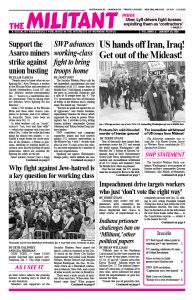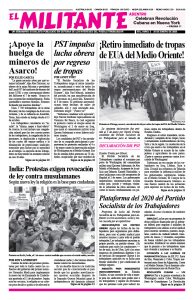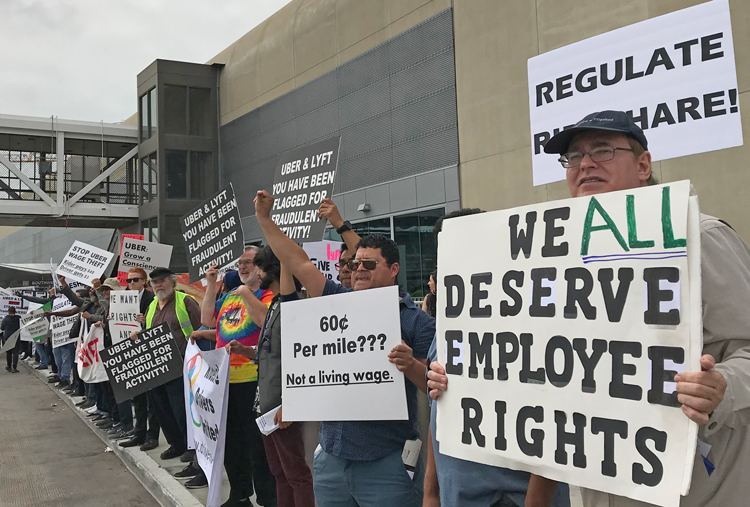LOS ANGELES — The day a new California labor law was to go into effect a federal judge blocked it for more than 70,000 independent truckers. Assembly Bill 5 was designed by liberal politicians to “solve” the problem many workers face — from Uber and Lyft drivers to port truckers. Bosses designate them as independent contractors. This bill imposes new regulations to reclassify them as employees starting Jan. 1.
Uber and Lyft bosses employ hundreds of thousands of drivers they call independent contractors, making it easier to superexploit them. Companies don’t have to pay overtime, unemployment benefits, workers compensation or minimum wage. Workers have to purchase or lease their own trucks or cars and bear all responsibility for insurance, maintenance and taxes.
Like the trucking bosses, Uber, Lyft and food delivery companies like Postmates and DoorDash are also contesting Assembly Bill 5 in court and have amassed a $100 million war chest — to place a referendum on the ballot to nullify the law. Claiming the law doesn’t cover them, they refuse to comply.
In recent years truckers at the ports and rideshare drivers have protested deteriorating wages and working conditions. Hundreds demonstrated here last spring against Uber’s decision to slash mileage rates by 25%. Even though federal labor laws prohibit contractors from unionizing, thousands have joined organizations like Rideshare Drivers United and groups affiliated with the Teamsters and Service Employees unions.
Uber and Lyft hide what drivers get paid by a complicated labyrinth of pay rates and bonuses. The bosses’ “growth model” is to draw investments to expand explosively dealing blows to regular taxicab drivers as they forego profits for now. They dream of superprofits after the competition is crushed. For now, they seek to cut their losses by reducing the pay and conditions of their drivers.
“I’m making half of what I made a couple years ago” for the same hours, Uber driver Makeba James told the Militant. “They have no plan to make us employees.” Many prefer to work “as contractors because of the flexibility.”
Lyft and Uber executives preach that workers as contractors can be their own boss, set their own hours and be better off “if we update century-old employment laws.”
Port truckers and warehouse workers — who know damn well they’re workers exploited by a boss — have protested the contractor classification for years, fighting for better working conditions and a union. But the Los Angeles Times reports that in 2019 only 1,000 of the 13,000 port truckers are unionized.
Passing Assembly Bill 5 became the focus of union officials and liberal politicians last spring. They urged workers to rely on their “friends” in Sacramento and Washington to win new regulations to rein in the bosses, not to fight for a union and for gains in pay and conditions. Drivers’ and truckers’ actions slowed during the state legislative debate as the liberals focused on lobbying.
“Working people can only make gains if we rely on ourselves,” organize our strength in numbers “and the solidarity we will win in struggle,” Dennis Richter said in a statement for the Socialist Workers Party Jan. 2.
“I have joined the picket lines with port truckers and rideshare drivers. These point a way forward. We need to keep fighting for one union for all drivers, be they taxi, Uber, Lyft or other app-based and car service drivers,” Richter said. “Workers need our own party, a labor party, to strengthen our class’s battles, and to fight for political power ourselves.”


